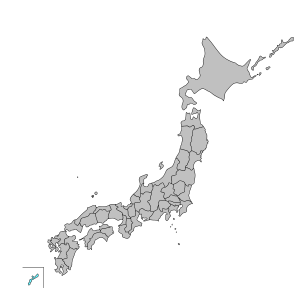Ryukyu Awamori (Okinawa)

(Okinawa Prefecture)
The Culture and Characteristics of Ryukyu Awamori
1.Historical Background
Ryukyu Awamori is a traditional distilled spirit from Okinawa with over 600 years of history. Its origins date back to the 15th century, when the Ryukyu Kingdom adopted distillation techniques from Thailand through trade with Southeast Asia.
During the Ryukyu Kingdom era, Awamori, known as Usaki (御酒), was presented to the royal court and used in diplomatic ceremonies, signifying its importance. The name "Awamori" is said to come from the bubbles (awa) that rise and gather during distillation or from the way the bubbles form when poured.
In 1983, “Ryukyu Awamori” was designated as a geographical indication (GI), meaning that only Awamori produced in Okinawa can bear this name. This system ensures the preservation of quality and tradition.
2.Ingredients and Unique Production Methods
A defining characteristic of Awamori is its use of Thai rice as the main ingredient. This long-grain rice, rich in starch, has historical significance, reflecting the trade relationships of the Ryukyu Kingdom. Its structure makes it ideal for Awamori production.
The production process uniquely involves black koji mold (kuro-koji-kin), a microorganism essential to Awamori brewing. Black koji provides strong fermentation power and imparts a distinctive aroma and flavor. Additionally, Awamori uses a single distillation method, preserving the character of the raw ingredients and creating a unique taste and aroma.
3.Changes Through Aging
One of Awamori’s fascinating features is how its flavor evolves with long-term aging. Known as kusu (古酒), aged Awamori refers to spirits matured for at least three years. As aging progresses, the spirit develops greater smoothness and complex flavors.
A traditional aging method involves storing Awamori in unglazed clay pots (kame). These pots allow slight air permeability, enabling slow maturation. Long-aged Awamori, revered as kusu-kwaachi (古酒が効く), is highly valued.
4.Traditional Ways of Drinking
Awamori can be enjoyed in various ways, with water dilution being the most common. Known as mijin-mari (ミジヌマリ) in Okinawa, the typical ratio is 6:4 or 7:3 of water to Awamori. In colder months, yukkanumari (ユッカヌマリ), a hot water mix, is popular for enhancing the aroma and creating a smooth taste.
On-the-rocks consumption has also become widespread, allowing drinkers to enjoy flavor changes as the ice melts. Additionally, Awamori mixed with coffee, called “Sunny Liquor,” is a unique Okinawan tradition.
5.Modern Innovations
Awamori is gaining attention as a base for cocktails. It pairs well with local Okinawan citrus fruits like shikuwasa, inspiring various creative cocktails. Awamori is also being used in liqueurs and ume-shu (plum wine) to appeal to younger generations.
6.Pairing with Traditional Okinawan Cuisine
Awamori complements Okinawa’s traditional food culture. A classic pairing is with rafute (braised pork belly), where the richness of the pork matches the aroma of Awamori, especially aged kusu. Mimiga (vinegared pig’s ear) enhances Awamori’s flavor with its crunchy texture and tangy notes.
Popular Okinawan stir-fry dishes like goya champuru pair well with Awamori, with its refreshing aroma enhancing the dish’s flavors. Fish dishes like maasu-ni (salt-simmered fish) also harmonize with Awamori, creating a deeper dining experience.
7.Contemporary Pairings
In recent years, Awamori has been paired with broader cuisines, including Japanese and Chinese dishes. With sashimi or sushi, Awamori’s aroma balances the umami of seafood. Its smokiness pairs well with grilled dishes like yakitori, while its richness complements spicy Chinese dishes like mapo tofu.
8.Cultural Significance in Okinawa
Awamori represents more than just a beverage; it is a cultural symbol of Okinawa. It plays a vital role in celebratory occasions such as New Year’s rituals, weddings, and offerings at harvest festivals.
Awamori also embodies the Okinawan spirit of yui-maru (mutual support). Shared during community events or after collective tasks, it strengthens social bonds within local communities.
9.Conclusion
Ryukyu Awamori is a traditional distilled spirit made with Thai rice (indica rice) and a unique production method using all-koji fermentation. Steeped in history from the Ryukyu Kingdom era, its aged varieties (kusu) are especially treasured. Paired with Okinawan cuisine, Awamori has created its own distinctive drinking culture.



